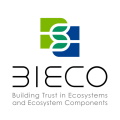WP2 – Architecture, Requirements, and Use Case Definition
Coordinated by
UNINOVA (M01-M12)
Objective
The main objectives for this WP are:
- Detailing the requirements of the project together with its Key Performance Indicators
- Defining and detailing the use cases that will validate the work to be developed
Designing the architecture that supports all the objectives identified in the excellence part
Deliverables
- D2.1 Project Requirements WP2 (11 – IFEVS) Report Public M4
- D2.2 Use Case Definition WP2 (7 – RESILTECH) Report Confidential, only for members of the consortium (including the Commission Services) M12
- D2.3 Overall framework architecture design (1st Draft) WP2 (1 – UNINOVA) Report Public M6
- D2.4 Overall system architecture Update (Final) WP2 (1 – UNINOVA) Report Public M18
Outcomes
Extension of the approach to the communications within the whole supply chain of the Microfactory
Once the secure communication with a vehicle has been demonstrated for remote FW update, it is straightforward to extend it to a general Service-Over-the-Air architecture and even further.
Ontology Manager Tool
Ontology Manager is a Framework responsible for managing the Core Ontology used in BIECO, called DAEMON. It aims to support organizing concepts and their relationships related to System of Systems (SoS), Internet of Things (IoT), and System Components management and Monitoring.
Vulnerabilities Forecasting Tool
The Vulnerabilities Forecasting Tool (VFT) provides historical vulnerability data and projections for time intervals of 1, 2, 3, 6, and 12 months for several major software components.
Failure Prediction Tool
The Failure Prediction Tool (FPT) performs failure predictions by monitoring the logs of the applications that make up a system. It has a REST interface through which it receives in real time the log messages from the monitored applications.
safeTbox
The pre-existing tool safeTbox (www.safetbox.de) has been extended to support interoperation with the ResilBlockly tool for combined safety and security analysis.
Conditional Safety Certificates for ICT
Conditional Safety Certificates (ConSerts) have been applied to support resiliency of ICT infrastructures. Support for deployment and execution of ConSerts in ICT infrastructure according to use case needs was provided additionally.

